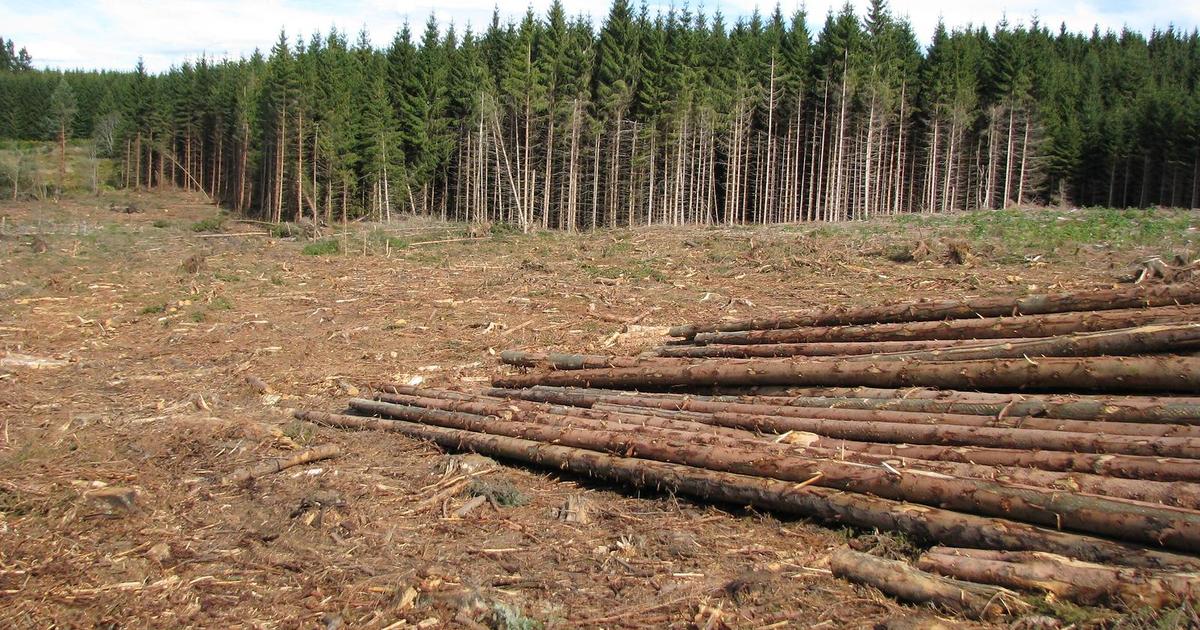Le Figaro Bordeaux
This is not the latest trendy haircut.
Clear felling is a forestry technique consisting of felling at once all the trees of the same age that grew at the same time, thus completely deforesting a plot, left bare before being replanted.
A controversial practice, particularly for its impact on soil and biodiversity, that Gironde MP Sophie Panonacle (Renaissance) wishes to better regulate, in order to ensure the resilience of forests in the face of climate change.
On February 13, a bill (PPL)
“modifying forest policy to meet the challenges of adapting forests to climate change”
, presented by around sixty parliamentarians, was registered at the presidency of the National Assembly. .
This is a sort
of “Act II of the adaptation of the forest to climate change”
, specifies Sophie Panonacle, who was already co-rapporteur of the law
“aimed at strengthening the prevention and
fight against intensification and extension of fire risk
”
, promulgated in July 2023, a year after the terrible fires of summer 2022 in the South-West, where more than 30,000 hectares of forest went up in smoke.
Also read: Canada: global warming has made forest fires at least seven times more likely
“Balance between economy and ecology”
According to the explanatory memorandum of this PPL,
“the proposed law essentially aims, in the light of scientific knowledge and silvicultural practices, to adapt the forest to climate change so that it continues to ensure its vital functions for our society”
.
Article 4 of this PPL - which includes twelve - wishes to define clearcutting and
“clarify”
the use of this practice.
A collective scientific expertise has demonstrated
"negative impacts of clear felling, increasing with the size of the cuts, on the physical environment"
, and particularly
"risks of windthrow
(uprooted trees, Editor's note)
and erosion"
, on settlement, on losses of carbon and mineral elements from soils, on waterways and on biodiversity.
Conversely, the diversity of silvicultures and a network of senescence islands (naturally aging forest areas) have positive effects on biodiversity.
This text of law therefore proposes
“a proportionate and progressive framework aimed at reducing the negative impacts of clear-cutting while taking into account economic constraints, through a base of national rules, the thresholds of which are adjustable at the territorial level”
.
The idea is
“to find a balance between economy and ecology”
, summarizes Sophie Panonacle, by preserving the yield of the forest and biodiversity.
Read alsoForests: the Council of State rejects the limitation of clearcutting
“We need to be able to evolve on this subject”
Despite the scientific arguments in favor of limiting clearcutting, many foresters defend this practice.
“We have to be able to evolve on this subject, because we have to change the model”
, believes Sophie Panonacle, specifying
“not wanting to punish anyone but succeeding in producing more and better quality wood”
.
However, according to Maxime Chaumet, general director of France Bois Forêt, the national inter-professional association for the sector,
“the regulations are already quite important”
.
Thresholds are set and
“any cutting must be provided for in a management plan or be the subject of an authorization request from the State services”
.
For Maxime Chaumet,
“clear felling will be necessary to renew stands at the end of the cycle or replant new species
adapted to the climate of tomorrow
”
.
“If the law is intended to give direction to a policy, it cannot and must not, in forestry matters, excessively govern the details of silviculture and the practices of forest stakeholders, who must be able to benefit from margins of maneuver to adapt, with agility, to the vagaries of climate change"
, specifies this text, however, so as not to go against professionals in the sector.
This bill must now be examined by Parliament, where it can be discussed and amended after hearings with stakeholders in the sector.
“The subject is sufficiently important for us to be able to deal with it quickly”
, hopes the member for the Arcachon basin, who says she is
“rather optimistic”
that the examination of the text will take place
“before this summer”
.

